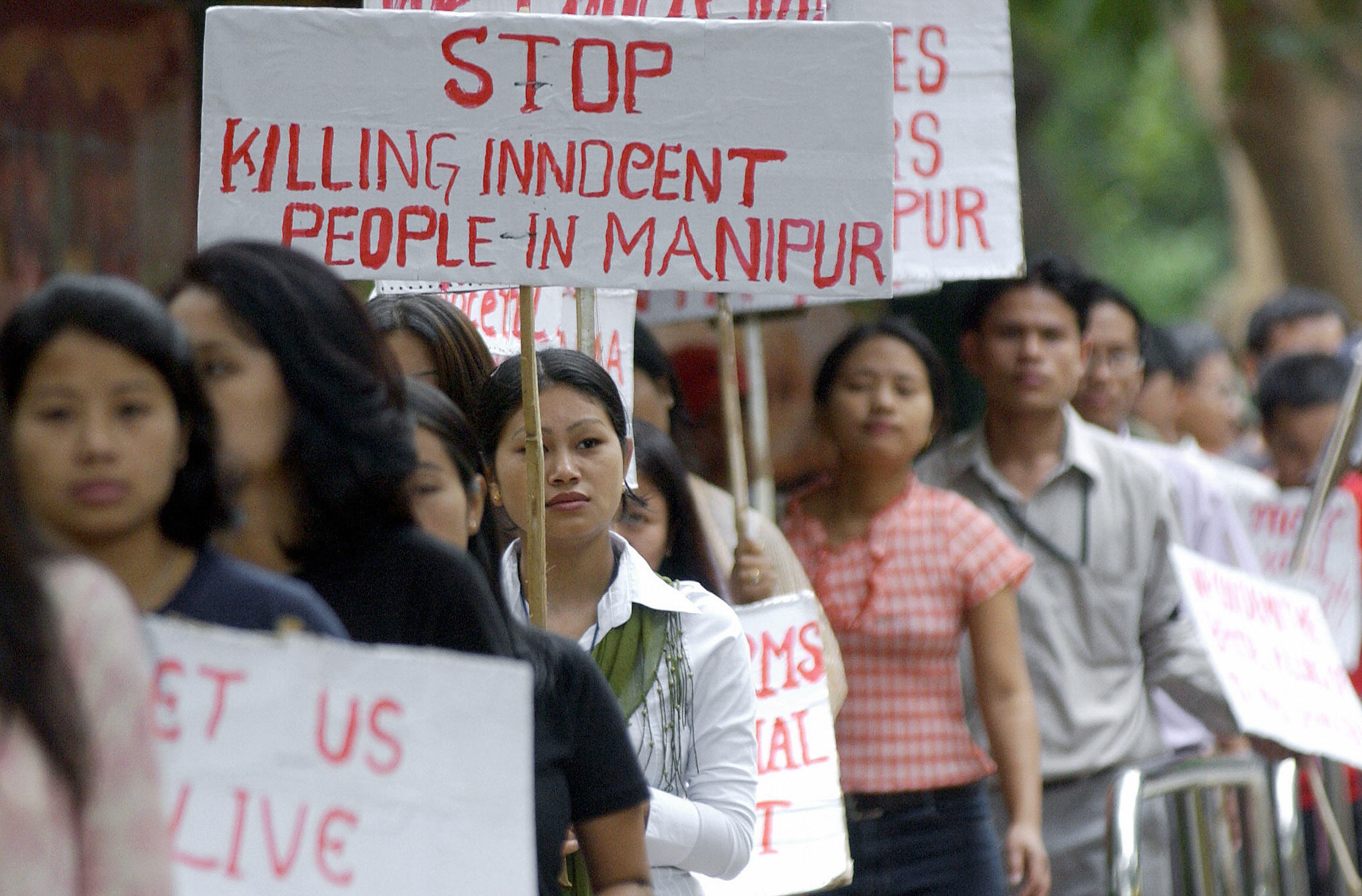Manipur: India’s long wait for justice
Supreme Court overseeing the state of Manipur considers an investigation following a spate of deaths

A free daily email with the biggest news stories of the day – and the best features from TheWeek.com
You are now subscribed
Your newsletter sign-up was successful
The Supreme Court presiding over the northeastern state of Manipur is expected to rule in late July on whether to fully investigate hundreds of deaths that might be linked to the security services.
While police deny any wrongdoing, human rights activists allege that a controversial law dating back to 1958 provided blanket protection to the Army and the Manipuri commandos to kill with impunity.
The Armed Forces (Special Powers) Act 1958 - which came in force in Manipur years later - allowed police to detain civilians in the conflict-ridden state without warrants on "reasonable suspicion". Activists claim that an estimated 1,528 people may have been unlawfully killed under its guise.
The Week
Escape your echo chamber. Get the facts behind the news, plus analysis from multiple perspectives.

Sign up for The Week's Free Newsletters
From our morning news briefing to a weekly Good News Newsletter, get the best of The Week delivered directly to your inbox.
From our morning news briefing to a weekly Good News Newsletter, get the best of The Week delivered directly to your inbox.
The Supreme Court last year ruled that the alleged murders "must be investigated" and empowered relatives and human rights investigators to gather initial evidence for possible prosecution.
Why is there trouble?
The tension can be traced back to 1980 when the Armed Forces Special Powers Act (AFSPA) was expanded to cover the entire state of Manipur to tackle the lawlessness created by four main insurgent groups, reports the Times of India.
Under the law, governments can declare a region or state as "disturbed" by reason of "differences or disputes between members of different religious, racial, language or regional groups." Security forces were given powers under the law, including the power to shoot civilians, for "maintenance of public order".
A free daily email with the biggest news stories of the day – and the best features from TheWeek.com
Manipur was declared "disturbed" due to an independence conflict.
What do the activists claim?
Though the AFSPA was scaled back in 2004 in parts of Manipur, the law has still been blamed for so-called "fake encounters", which the BBC describes as "staged confrontations which almost invariably end with dead criminals and unscathed police".
The Extra Judicial Execution Victim Families Association alleged in a court filing that the more than 1,500 deaths that occurred from 1979 until May 2012 were linked to the fake encounters. The court document was posted online by the Human Rights Law Network.
What do the officials say?
The Supreme Court in 2013 investigated six cases from among the more than 1,500 killings claimed by activists and found that "excessive force" had been used in some cases.
Security forces in the region insist that the numbers quoted (of more than 1,500) are too high: "There may have been a few cases where things had gotten to extrajudicial killings," Joykumar Singh, former Manipur Police Chief told the BBC. "But I do not think the number being quoted should be that many.
What happens next?
The Supreme Court in 2016 asked activists and relatives to collect evidence regarding the more than 1,500 cases alleged to have involved unlawful deaths. Evidence regarding 748 of the deaths was presented to the court in April.
At the end of July, the Supreme Court is expected to make a decision based on the evidence. If it orders a full investigation, the BBC reports that it may lead to police prosecutions.